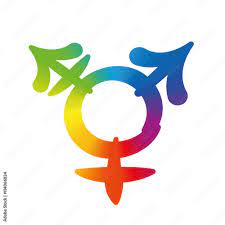In an increasingly diverse world, the terminology surrounding gender identities can be both fascinating and complex. Among these terms, “cisgender” or “cis” is often mentioned, yet many people may not fully understand what it means. This article aims to illuminate the concept of being cisgender, exploring its implications, societal perceptions, and how it fits into the broader dialogue about gender identity.
Understanding the Basics: What Does "Cis" Mean?
The term "cisgender" refers to individuals whose gender identity aligns with the sex they were assigned at birth. For example, someone who was assigned female at birth and identifies as a woman is cisgender. The prefix "cis-" comes from Latin, meaning "on this side of," which contrasts with "trans-," meaning "across" or "beyond." Thus, cisgender people are those who remain within the gender binary that corresponds to their biological sex, while transgender individuals experience a disconnect between their gender identity and assigned sex.Femdom Forced Feminization StoriesFacial Feminization Simulator
Understanding this term is essential for fostering a more inclusive conversation about gender. By clarifying what “cis” means, we can better appreciate the experiences of those who identify as transgender or non-binary. Knowing the difference can help dismantle stereotypes and promote empathy, creating a more supportive environment for everyone, regardless of their identity.
The Difference Between Cisgender and Transgender Explained
Cisgender and transgender represent two distinct experiences within the broader spectrum of gender. While cisgender individuals find a sense of congruence between their identity and biological sex, transgender people experience a misalignment, often leading them to transition to the gender with which they identify. This transition can be social, medical, or both and is a crucial aspect of many transgender individuals’ journeys toward authenticity and self-acceptance.
It’s essential to recognize that being transgender is not merely about the physical changes one undergoes; it’s about the deeply personal and emotional journey of aligning one’s external life with their internal identity. Understanding these differences can help foster a deeper appreciation for the complexity of gender and the unique experiences of those on both sides of the cis-trans spectrum.
The Importance of Language: Why Words Matter Here
Language plays a fundamental role in shaping our understanding of identity, and the terms we choose to use can carry significant weight. Referring to someone as "cisgender" is not meant to label or categorize them in a negative way; rather, it’s a way of acknowledging their experience without assuming that everyone conforms to the same gender identity. In conversations about gender, using precise terms allows for greater clarity and respect, promoting a more inclusive atmosphere.
Moreover, language can influence societal attitudes towards gender. As more people become familiar with terms like "cisgender" and "transgender," it fosters an environment where discussions about gender are more nuanced and informed. This increased awareness can lead to a more respectful dialogue, reducing stigma and promoting understanding among individuals of different identities.
Common Misconceptions About Being Cisgender
One common misconception is that being cisgender is somehow "normal" or "default," leading to the erasure of diverse gender identities. This perception can create a false dichotomy, suggesting that cisgender identities are superior or more valid than transgender ones. Such views can perpetuate harmful stereotypes and contribute to a society that marginalizes non-cisgender individuals. Challenging these misconceptions is crucial for creating a more inclusive environment.
Another misconception is the belief that cisgender individuals cannot experience gender-related struggles or discrimination. While it’s true that cisgender people may not face the same systemic challenges as transgender individuals, they can still encounter issues related to gender norms, expectations, and societal pressures. Acknowledging these experiences can foster empathy and encourage solidarity among individuals of all gender identities, promoting a more inclusive dialogue.
Exploring the Spectrum: Beyond Just Cis and Trans
Gender identity is increasingly recognized as a spectrum rather than a binary choice. While cisgender and transgender are two significant categories, there are numerous identities that exist outside of this dichotomy. Non-binary, genderqueer, and genderfluid are just a few examples of identities that reflect the diverse ways individuals experience and express their gender. Recognizing this spectrum helps break down rigid definitions and celebrates the fluid nature of identity.
By embracing a broader understanding of gender, society can move towards an inclusive framework that respects and validates various identities. This inclusivity enriches our collective understanding of the human experience, allowing for deeper connections between individuals of diverse backgrounds. Celebrating this spectrum encourages everyone to explore and express their identity authentically.
How Society Views Cisgender Individuals Today
The perception of cisgender individuals in society is often complex. On one hand, they may enjoy societal privilege simply by conforming to the gender norms associated with their assigned sex. This privilege can manifest in the form of acceptance, safety, and opportunities that are often not afforded to transgender individuals. As a result, there can be an unspoken expectation for cisgender individuals to be allies, advocating for the rights and recognition of marginalized gender identities.
On the other hand, there is a growing awareness and critique of the default positioning of cisgender experiences within discussions about gender. Many advocates argue that simply being cisgender should not exempt individuals from engaging in conversations about gender equity and inclusion. This duality in perception challenges cisgender individuals to reflect on their role in promoting equality and understanding the nuances of gender identity.
The Role of Privilege in Being Cisgender
Cisgender individuals often benefit from a type of privilege that can be invisible to them. This privilege arises from societal norms that favor individuals whose gender identity aligns with their assigned sex at birth. For instance, cisgender people may not have to navigate the complexities of social transition, face discrimination in public spaces, or confront issues related to identity validation. This unearned advantage can lead to a lack of awareness about the unique challenges faced by transgender individuals.
Understanding this privilege is essential for fostering empathy and solidarity. Cisgender individuals can use their position to advocate for transgender rights, challenge discriminatory practices, and educate themselves and others about the importance of inclusivity. By acknowledging and addressing this privilege, cisgender individuals can contribute to a more equitable society for all.
Embracing Identity: What Being Cis Means to You
For many, being cisgender can be a source of comfort and security, as they may feel aligned with their gender identity and societal expectations. This alignment can simplify many aspects of life, such as self-expression and social interactions. However, it’s crucial to remember that each person’s experience is unique. Being cisgender doesn’t mean one’s identity is without its own struggles or that it lacks complexity; individuals may still grapple with societal norms, expectations, and personal identity questions.
Ultimately, embracing one’s identity—whether cisgender, transgender, or otherwise—means recognizing the diversity of experiences that come with it. It involves understanding the privileges and challenges associated with that identity and finding ways to support and uplift others, regardless of where they fall on the gender spectrum. By celebrating and sharing our stories, we contribute to a richer, more inclusive narrative about identity.
Understanding what it means to be cisgender is a vital piece of the puzzle in the broader conversation about gender identity. By exploring this concept, we gain insights not only into the experiences of cisgender individuals but also into the complexities faced by those who identify as transgender and beyond. As we continue to engage in discussions about gender, embracing diversity and fostering empathy will be key to creating a more inclusive society for everyone.


